“After teaching students of Samarkand State University, the level of English proficiency has significantly increased ...”
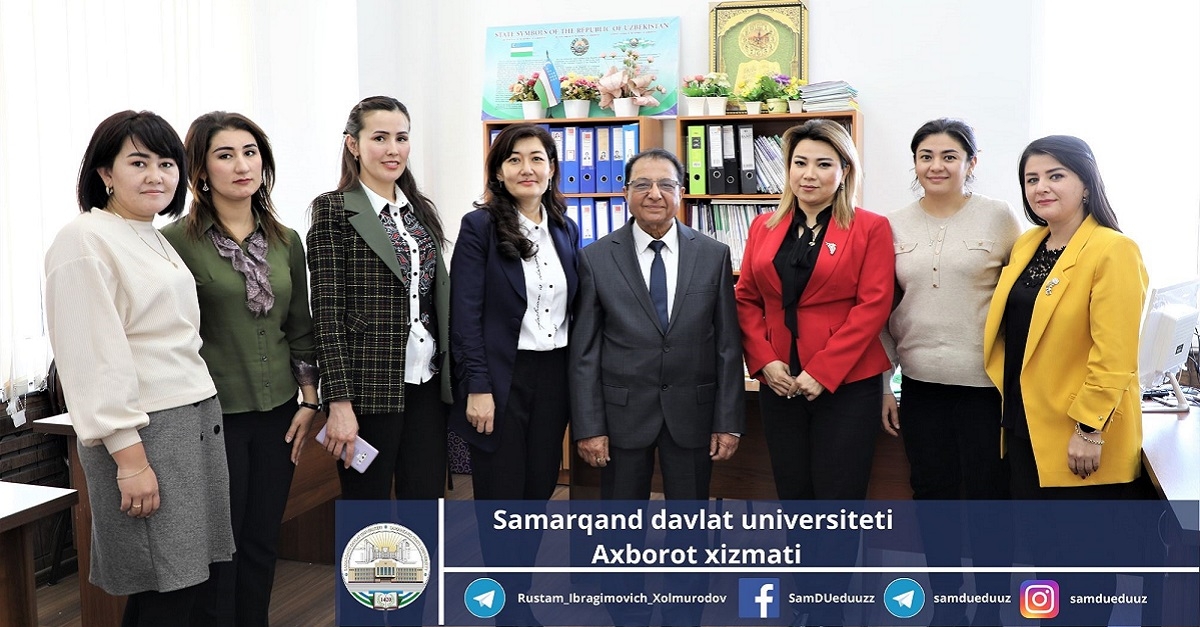
This is the opinion of Professor Ravinder Gargesh, President of the Association of Foreign Language Teachers of Asia, Head of the Department of English at Samarkand State University...
Samarkand State University is hosting the Week of Indian Universities. It should be noted that cooperation relations between SamSU and Indian higher educational institutions are developing day by day. Currently, 4 visiting professors from different universities in India work at Samarkand State University. To date, cooperation agreements have been signed with more than 10 Indian universities.
Professor Ravinder Gargesh, Head of the Department of English at Samarkand State University, answered questions about Indian Universities Week and the relationship between the Indian and Uzbek peoples.
- How do you assess the relations between Uzbekistan and India?
- Relations between Uzbekistan and India have a long history. If we turn to the past, then in the Kushan period, the peoples of these regions belonged to the same region and were in constant contact with each other. Relations between the two countries were further developed after the creation of the Great Silk Road. Thanks to this, not only trade, economic and political, but also socio-cultural relations developed between our peoples. The countries of Central Asia, in particular the regions of Samarkand and Bukhara, served as a bridge for India to Europe. The era of the Shah and poet Zahiriddin Muhammad Babur was a golden period in the development of friendly relations and cultural exchanges between the Uzbek and Indian peoples. The activities of this historical person in connection with India are known to all. I don't think a recap is needed. But, thinking about the friendship between the two peoples, it is certainly permissible to mention the name of Babur Mirza.
Friendly relations between the two peoples are still stable. The two countries are currently cooperating in a number of areas such as trade and economics, science and technology, medicine and education. Although our peoples differ from each other in language and nationality, their cultures are very similar and close to each other.
- What do you think about the cooperation of Samarkand State University with higher educational institutions of India?
- Cooperation relations of Samarkand State University with higher educational institutions of India are developing from year to year. My visit to Samarkand is also an example of such cooperation.
When I first came to Samarkand, I started my career as an ordinary university teacher. After training students of Samarkand State University, the level of English proficiency has significantly increased. After that, the number of people interested in my teaching activities increased. In this regard, we worked in constant cooperation with teachers of foreign languages working at SamSU. At the moment, I am the President of the Association of Foreign Language Teachers of Asia, which brings together teachers of foreign languages from the developed countries of Asia. Now we have managed to make Uzbekistan an official member of this association.
It is important to work in international cooperation and attract specialists from abroad to teach English. Speaking from my field, teaching English in Indian universities is somewhat different from teaching in Asian countries. Because English is the unofficial second language of Indians, and teaching the language requires very strong and intense methods. As a result, the results they achieve are also very high. SamSU students have strong knowledge and potential. We are constantly working on the development of students' English language skills in order to bring them to the level of foreign language proficiency in accordance with international requirements.
Under my scientific guidance, 12 doctors of sciences and professors have been trained. They currently work at prestigious universities around the world. I am teaching two researchers at Samarkand State University. They are currently conducting research on topics such as the development of English reading skills in higher education students and the teaching of professional subjects in English.
- What is the main goal of the "Week of Indian Universities" held at Samarkand State University?
- "Indian Universities Week" is held in conjunction with Indian Republic Day, which is currently celebrated in India. The main goal is to further develop the historical ties between India and Uzbekistan, organize seminars and trainings for students of Samarkand State University on study opportunities in ranking Indian universities, as well as familiarize the youth of Uzbekistan with Indian science. Tasks such as informing about the latest results and news being created are provided. I think that in a week the number of Uzbek students wishing to study at prestigious Indian universities will increase, we participated in seminars and trainings.
- What recommendations can you give to students to continue their studies in India?
-Students can continue their studies in India in two ways. The first is to apply directly to the university where you want to study. In this case, the student must cover the tuition costs. The second way is to apply through the official website of the Embassy of India in Uzbekistan. In this case, if you enroll in one of the Indian Universities, the tuition and living expenses will be fully covered by the Indian government. In this regard, a number of scholarship programs and grants for Uzbek students have been announced.
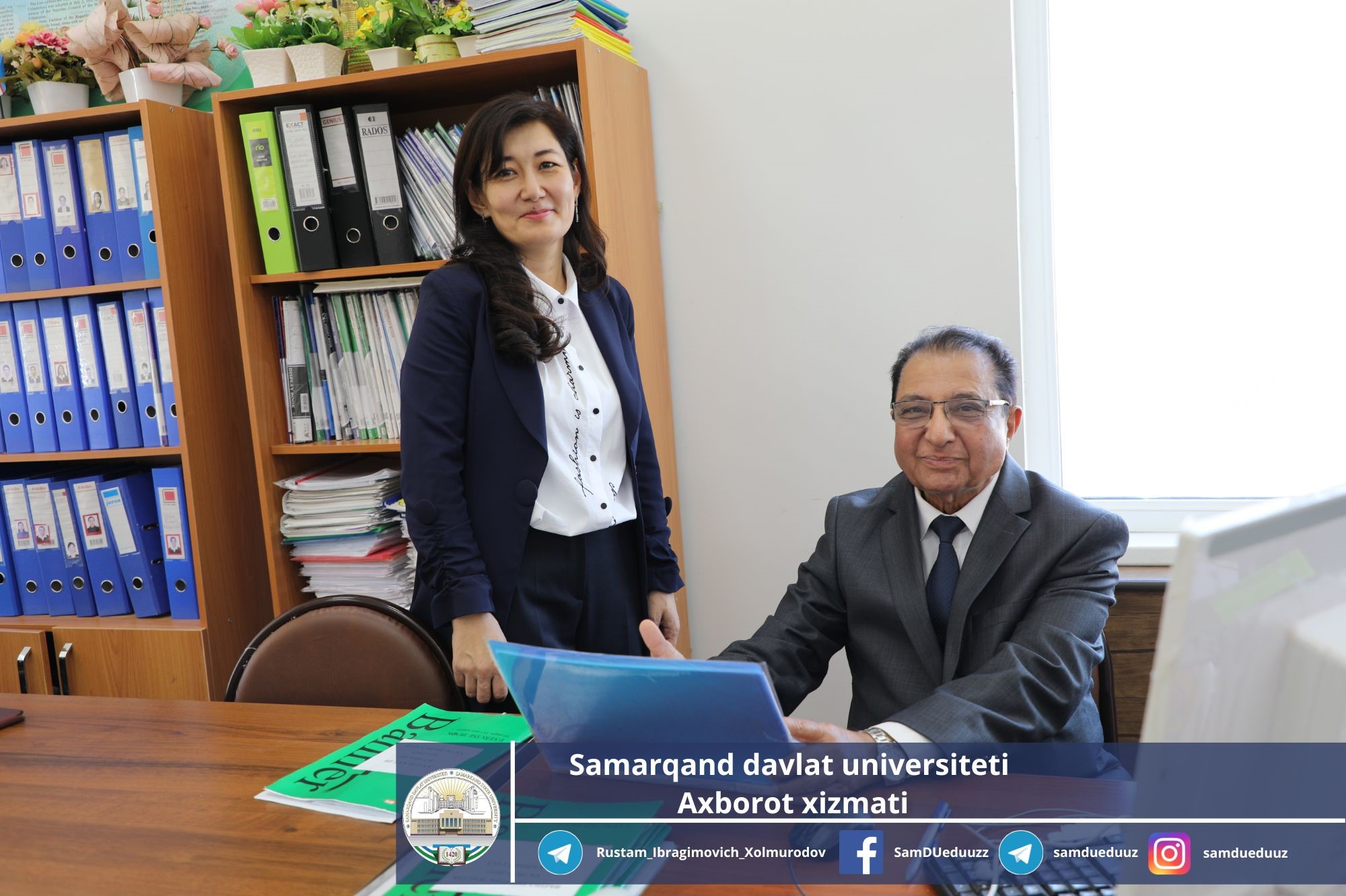
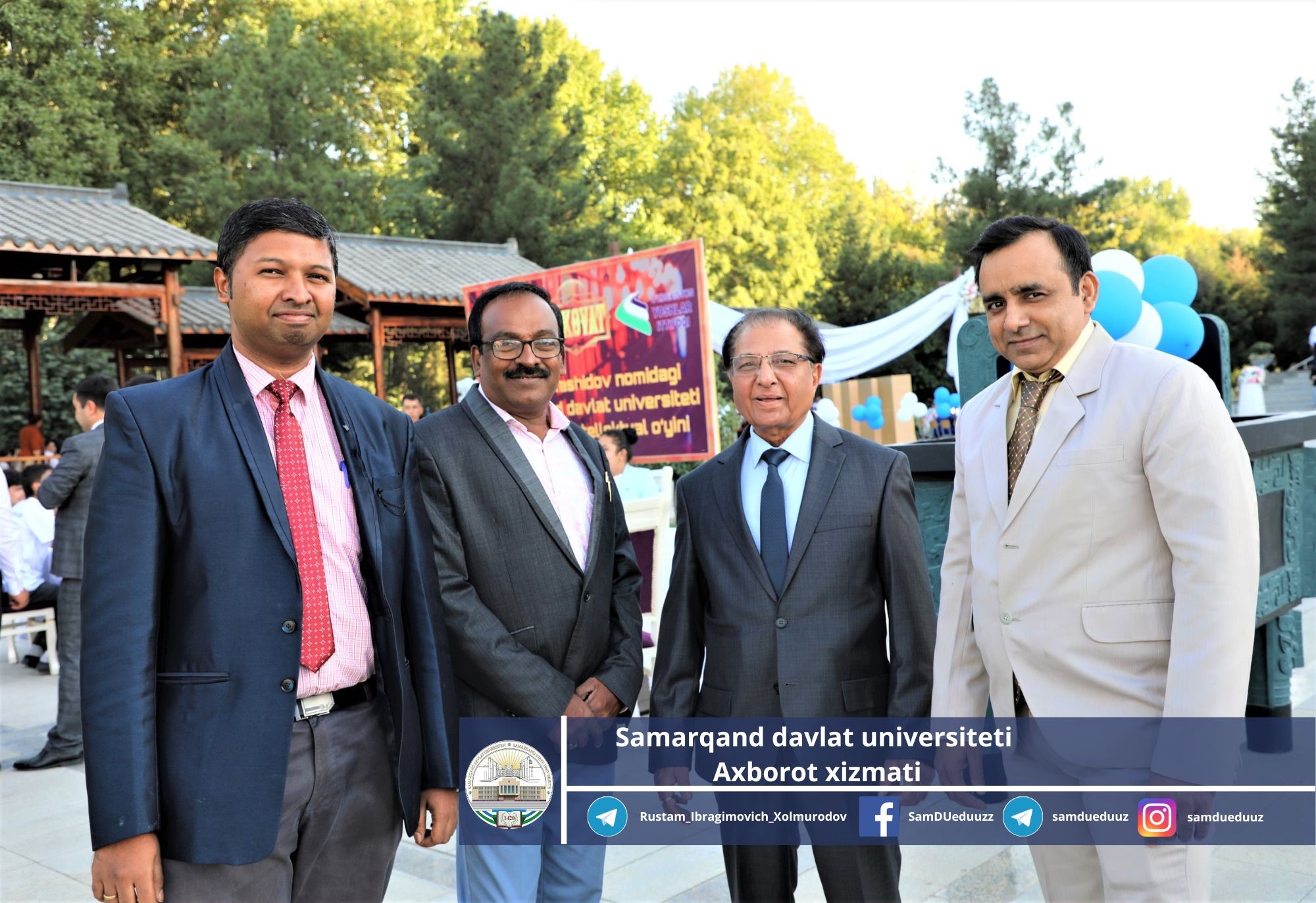
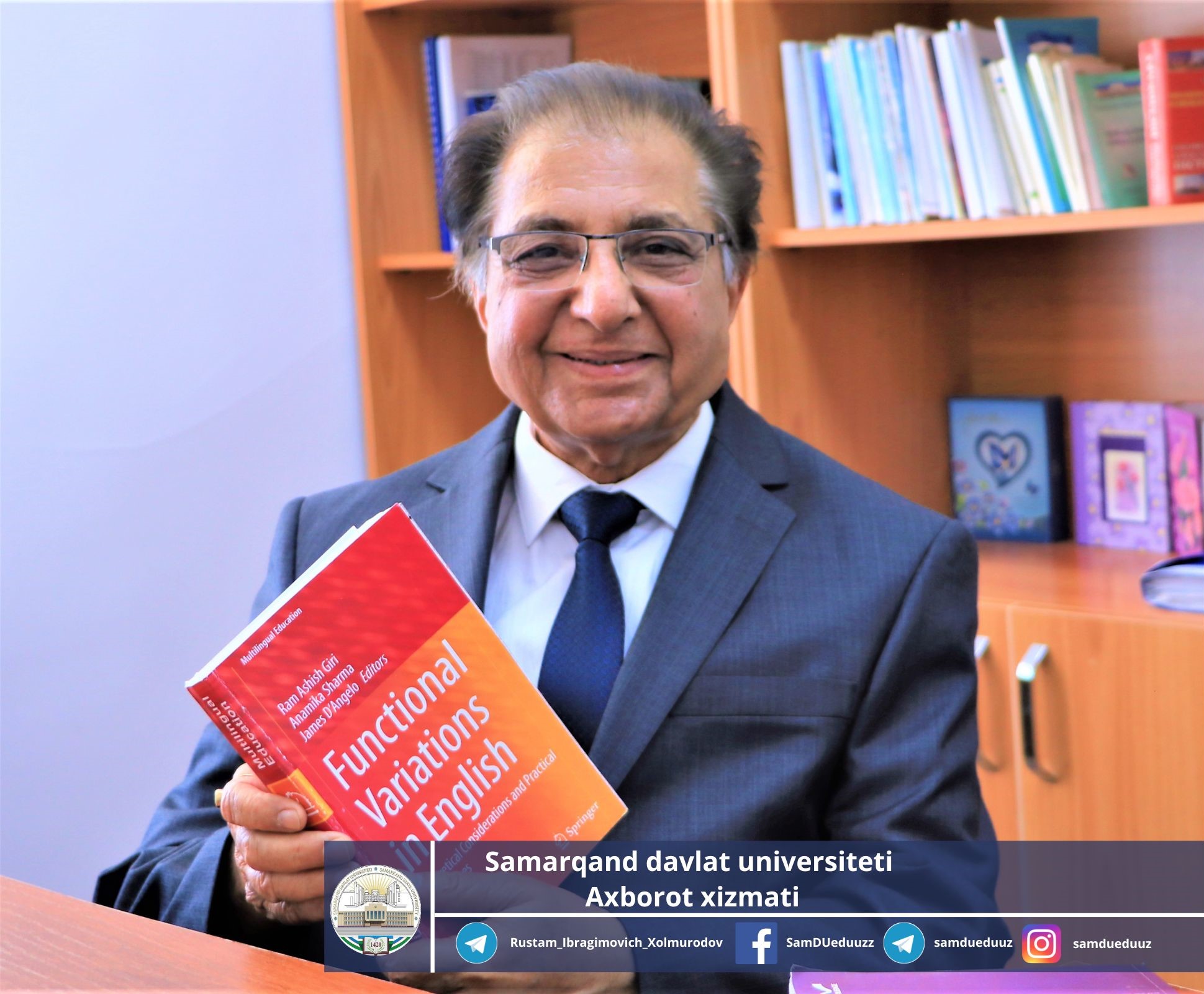
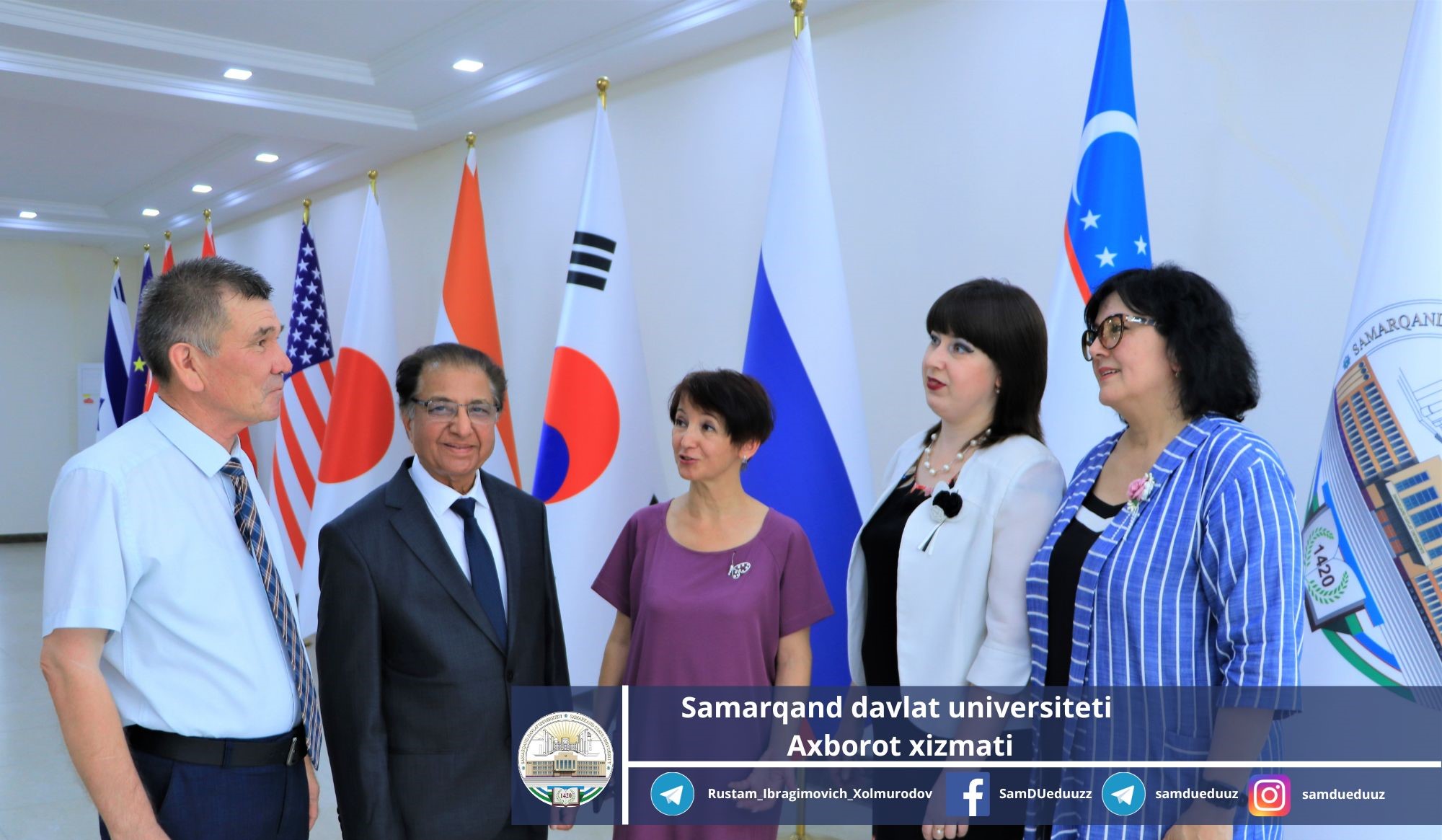
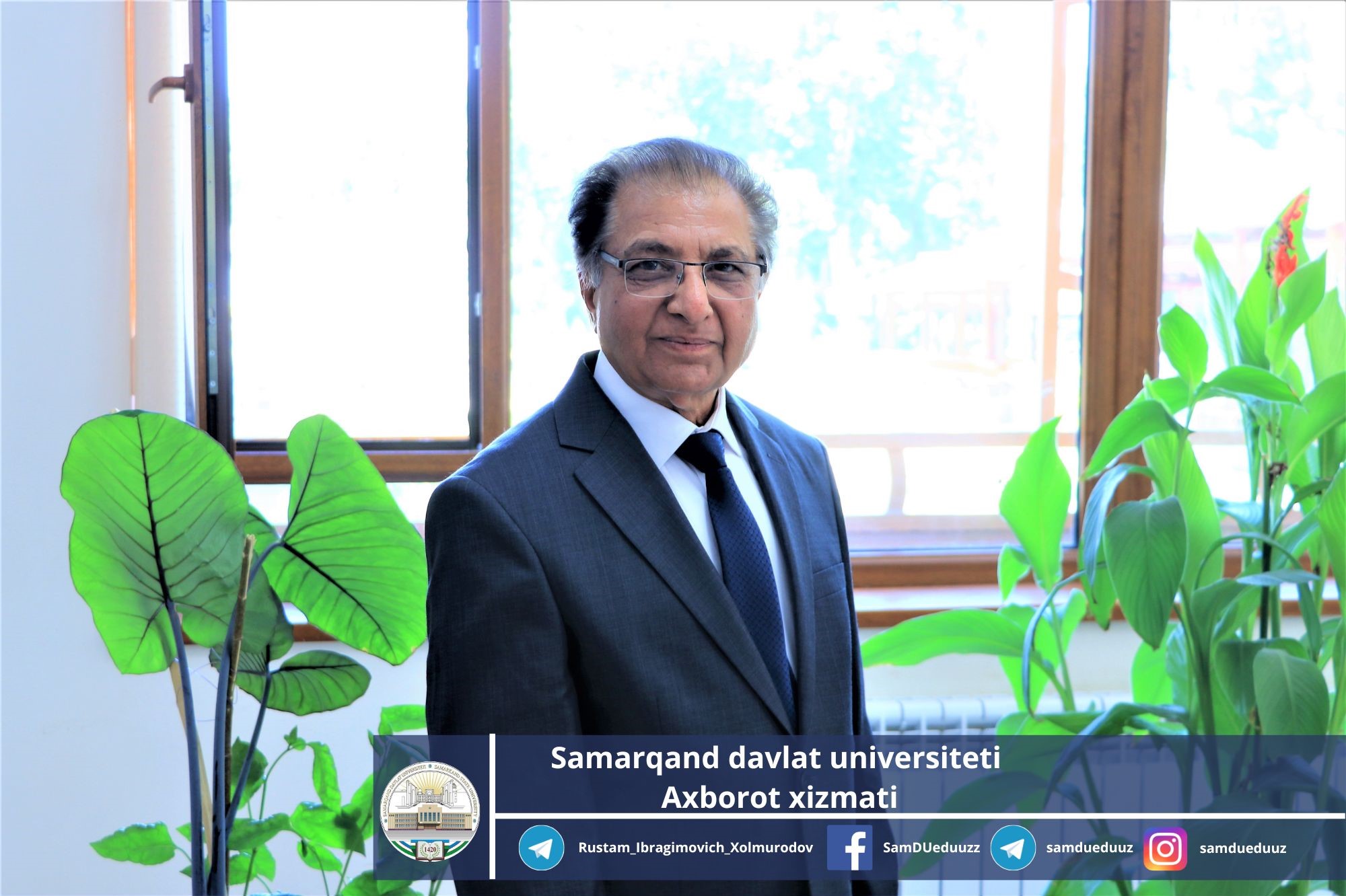
Conversation with Iroda BEKMURODOVA
Information service staff of
Samarkand State University,
The photographs were taken by Shavkat AKRAMOV.

